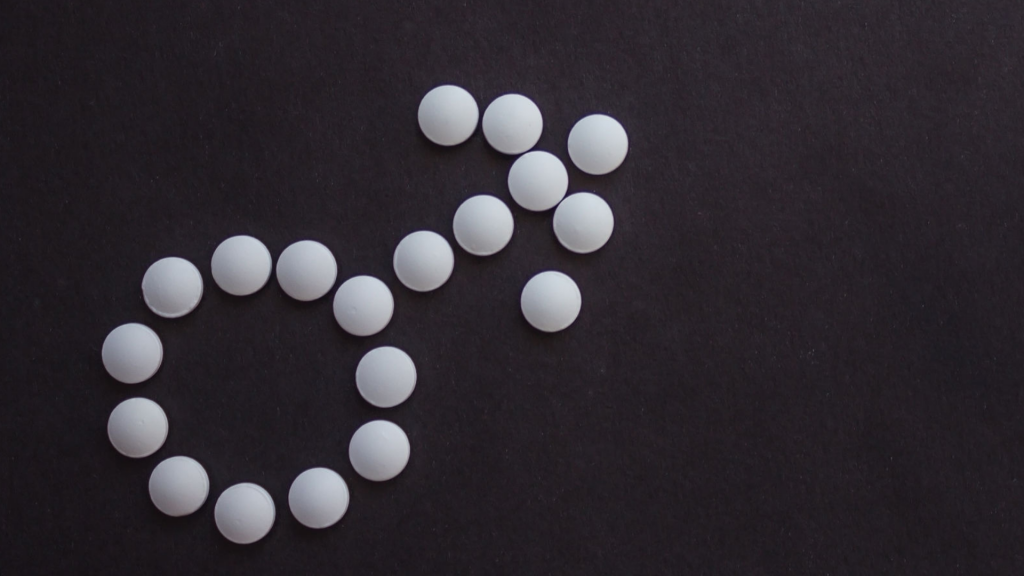Node Smith, ND
The experimental male oral contraceptive is called 11-beta-methyl-19-nortestosterone dodecylcarbonate, or 11-beta-MNTDC. It is a modified testosterone that has the combined actions of a male hormone (androgen) and a progesterone, said the study’s co-senior investigator, Christina Wang, M.D., Associate Director, Clinical and Translational Science Institute at Los Angeles Biomed Research Institute (LA BioMed), Torrance, Calif. “Our results suggest that this pill, which combines two hormonal activities in one, will decrease sperm production while preserving libido,” Wang said.
The combined actions of a male hormone (androgen) and a progesterone
The study took place in 40 healthy men at LA BioMed and the University of Washington in Seattle, Wash. Ten study participants randomly received a placebo capsule, or dummy drug. The other 30 men received 11-beta-MNTDC at one of two doses; 14 men received 200 milligrams, or mg, and 16 got the 400 mg dose. Subjects took the drug or placebo once daily with food for 28 days. The Eunice Kennedy Shriver National Institute of Child Health and Human Development, which is developing 11-beta-MNTDC and other male contraceptives, funded this study.
No participant stopped taking the drug because of side effects, and all passed safety tests
Among men receiving 11-beta-MNTDC, the average circulating testosterone level dropped as low as in androgen deficiency, but the participants reportedly did not experience any severe side effects. Wang said drug side effects were few, mild and included fatigue, acne or headache in four to six men each. Five men reported mildly decreased sex drive, and two men described mild erectile dysfunction, but sexual activity was not decreased, she said. Furthermore, no participant stopped taking the drug because of side effects, and all passed safety tests.
“Safe, reversible hormonal male contraception should be available in about 10 years,” predicts co-senior investigator
Effects due to low testosterone were minimal, according to co-senior investigator, Stephanie Page, M.D., Ph.D., Professor of Medicine at the University of Washington School of Medicine, because “11-beta-MNTDC mimics testosterone through the rest of the body but is not concentrated enough in the testes to support sperm production.”
Levels of two hormones required for sperm production dropped greatly compared to placebo, the researchers found. The drug effects were reversible after stopping treatment, Wang noted.
Because the drug would take at least 60 to 90 days to affect sperm production, 28 days of treatment is too short an interval to observe optimal sperm suppression, Wang explained. They plan longer studies, and if the drug is effective, it will move to larger studies and then testing in sexually active couples.
“Safe, reversible hormonal male contraception should be available in about 10 years,” Wang predicted.
“Most men are open to using this type of male birth control”
Wang said most men are open to using this type of male birth control. She cited a multinational survey of 9,000 men published in the journal Human Reproduction in February 2005 that found that 55 percent of men in stable relationships want to try new, hormonal male contraceptive methods if they are reversible.
11-Beta-MNTDC, a “sister compound” to dimethandrolone undecanoate, or DMAU
This experimental contraceptive, 11-Beta-MNTDC, is a “sister compound” to dimethandrolone undecanoate, or DMAU, the first potential male birth control pill to undergo testing by the same research team. Their results were published February 1, 2019 in The Journal of Clinical Endocrinology and Metabolism.
“The goal is to find the compound that has the fewest side effects and is the most effective,” Page said. “We are developing two oral drugs in parallel in an attempt to move the [contraceptive medicine] field forward.”
 Node Smith, ND, is a naturopathic physician in Humboldt, Saskatchewan and associate editor and continuing education director for NDNR. His mission is serving relationships that support the process of transformation, and that ultimately lead to healthier people, businesses and communities. His primary therapeutic tools include counselling, homeopathy, diet and the use of cold water combined with exercise. Node considers health to be a reflection of the relationships a person or a business has with themselves, with God and with those around them. In order to cure disease and to heal, these relationships must be specifically considered. Node has worked intimately with many groups and organizations within the naturopathic profession, and helped found the non-profit, Association for Naturopathic Revitalization (ANR), which works to promote and facilitate experiential education in vitalism.
Node Smith, ND, is a naturopathic physician in Humboldt, Saskatchewan and associate editor and continuing education director for NDNR. His mission is serving relationships that support the process of transformation, and that ultimately lead to healthier people, businesses and communities. His primary therapeutic tools include counselling, homeopathy, diet and the use of cold water combined with exercise. Node considers health to be a reflection of the relationships a person or a business has with themselves, with God and with those around them. In order to cure disease and to heal, these relationships must be specifically considered. Node has worked intimately with many groups and organizations within the naturopathic profession, and helped found the non-profit, Association for Naturopathic Revitalization (ANR), which works to promote and facilitate experiential education in vitalism.
Node Smith graduated from the National University of Natural Medicine (NUNM) in 2017, and is currently licensed as a naturopathic physician in Oregon and working towards becoming licensed in Saskatchewan, Canada as well.





